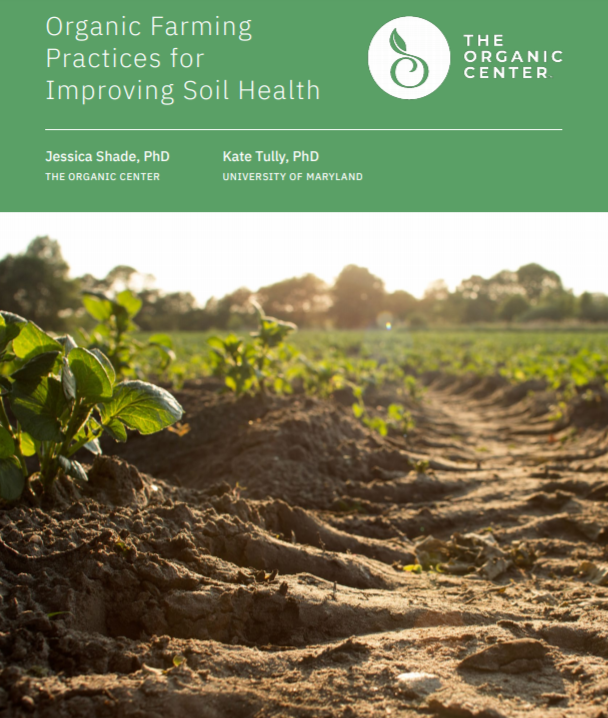Soil Health on Organic Farms
The Organic Center collaborated with the University of Maryland to review the science that evaluates organic methods for building soil health.


Healthy soils are essential for resilient crop production and supporting our ecosystem. They positively contribute to soil water retention, support a diversity of organisms vital to decomposition and nutrient cycling, provide crops with essential nutrients and can maintain carbon stores, contributing to global climate change mitigation. Simply put, there is no way for us to meet the growing demands for food, feed, fiber, and fuel if we do not maintain soil health.
Unfortunately, soils in the United States are being degraded by unsustainable agricultural practices. Techniques used by organic farmers can help stop soil health degradation, or even restore soil health in previously degraded soils, because they replenish soil organic carbon and preserve underground biodiversity.
However, the specific impacts of organic practices on soil health are not well understood. Broad surveys of soil health comparing organic and conventional systems consistently show the benefits of organic farming, but rarely compare strategies within organic systems to understand where these benefits arise, or how they can be maximized.
This project looks at past research on the benefits of organic farming to soil health and climate change mitigation, and surveys organic soil-building practices to illuminate specific strategies that have the biggest impacts on soil health.
HIGHLIGHTS
By examining over 150 published studies, this project takes an inventory of current knowledge on best practices within organic management for enhancing soil health and provides a roadmap for current management opportunities and future research directions to support long-term sustainability. This project looks at all the data that have been collected on organic soil building strategies from around the world to pull out general themes of organic practices so that we can get a big picture understanding of the trends around which strategies have the biggest impacts on soil, and how we can be strategic in filling gaps in our knowledge to advancing ecological organic practices. The four key practices that emerged to improve soil health outcomes include (1) cover crops; (2) organic amendments; (3) rotation diversity and length; (4) tillage
These findings are featured in a peer-reviewed scientific journal by Dr. Tully’s lab at the University of Maryland, and highlighted in a detailed Organic Center report.
Download Organic Center's summary report of findings
Read about the findings in the peer-reviewed scientific journal Organic Agriculture
RESEARCH PARTNERS
Dr. Katherine L. Tully, University of Maryland
Cullen McAskill, University of Maryland
Dr. Jessica Shade, The Organic Center
Dr. Amber Sciligo, The Organic Center
FUNDING PARTNERS
The Organic Center
GRO Organic
Annie’s Homegrown
Patagonia



